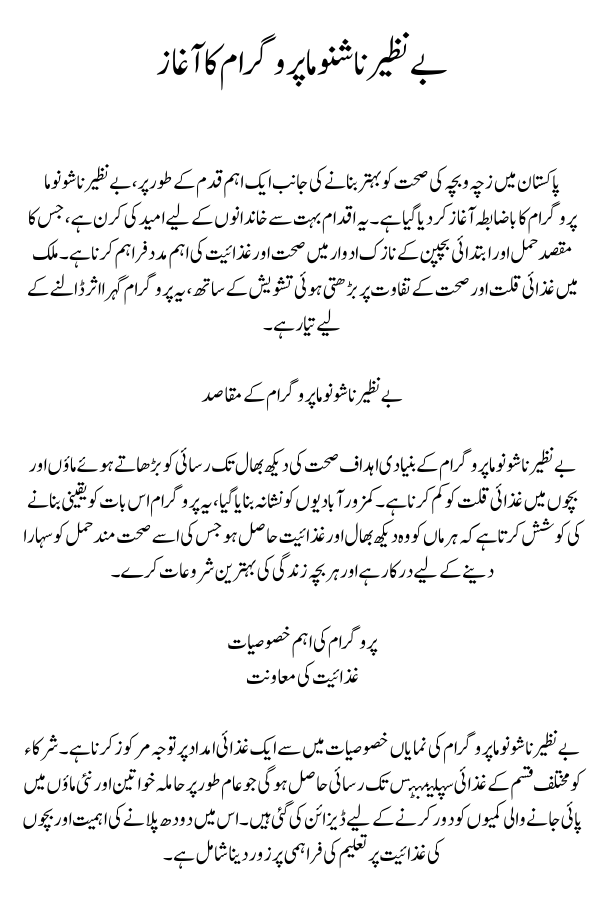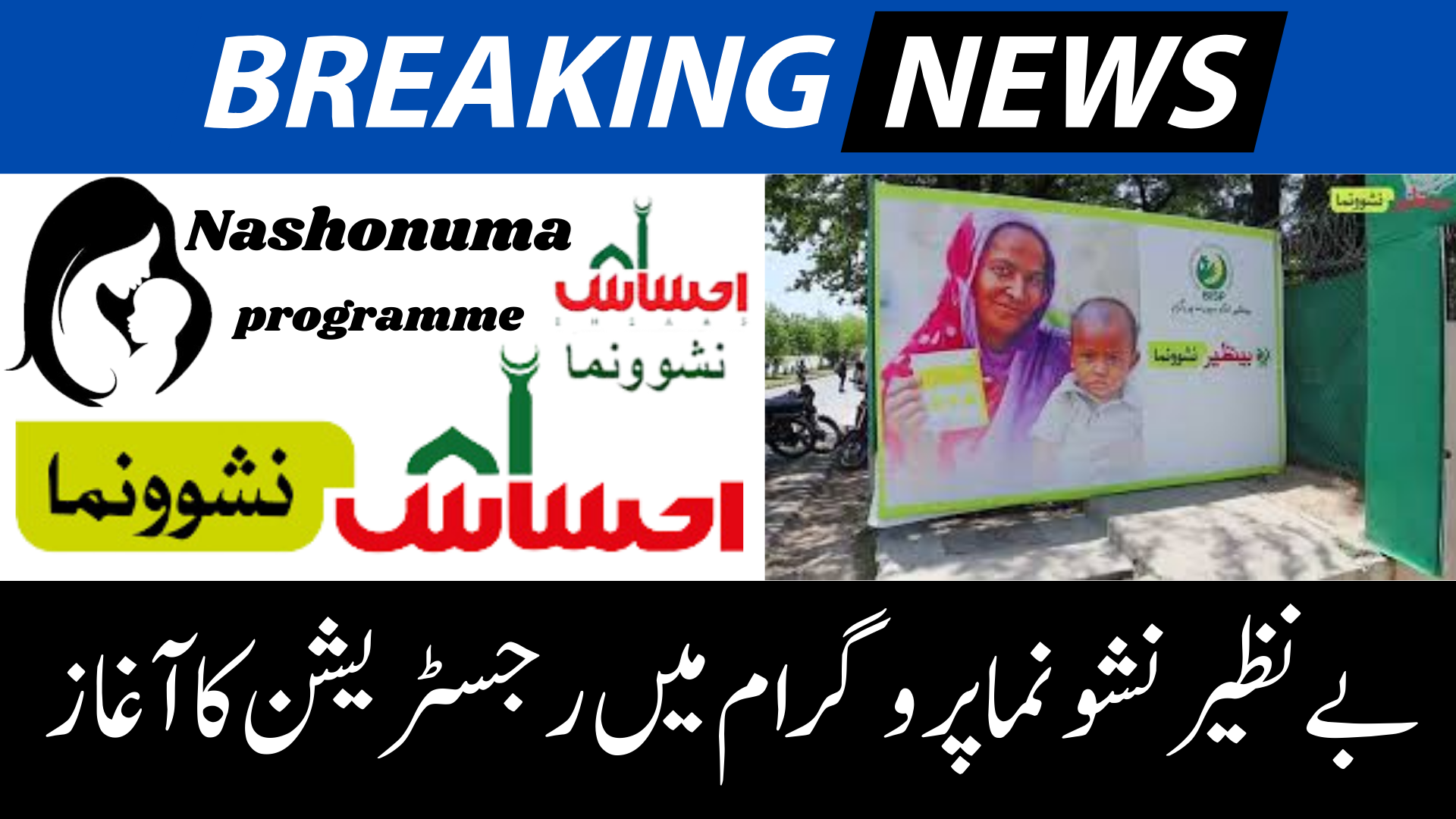Benazir Nashonuma programme launched
In a significant step towards improving maternal and child health in Pakistan, the Nashonuma Programme has been officially launched. This initiative is a beacon of hope for many families, aiming to provide vital health and nutrition support during critical periods of pregnancy and early childhood. With the rising concern over malnutrition and health disparities in the country, this programme is poised to make a profound impact.
Objectives of the Benazir Nashonuma Programme
The primary goals of the Nashonuma Programme are to reduce malnutrition among mothers and children while enhancing healthcare access. Targeted at vulnerable populations, the programme seeks to ensure that every mother receives the care and nutrition she needs to support a healthy pregnancy and that every child gets the best start in life.
READ MORE: Prime Minister Laptop Scheme
Key Features of the Programme
Nutritional Support
One of the standout features of the Nashonuma Programme is its focus on nutritional support. Participants will have access to a variety of nutritional supplements designed to address deficiencies commonly found among pregnant women and new mothers. This includes an emphasis on the importance of breastfeeding and the provision of education on infant nutrition.
Health Services Provided
In addition to nutritional assistance, the programme offers essential health services. These include immunization for infants, regular health check-ups for both mothers and babies, and access to medical advice. The integration of these services aims to create a holistic approach to health care that encompasses both nutrition and medical needs.
READ MORE:Green Tractor Scheme 2024
Target Beneficiaries
The programme is designed to support a wide range of beneficiaries, including:
- Pregnant Women: They receive comprehensive support throughout their pregnancy, ensuring their nutritional needs are met.
- New Mothers and Infants: After childbirth, mothers and their babies are monitored and supported through essential health services.
- Communities in Need: The programme particularly focuses on underserved areas, where access to health care and nutrition is often limited.

Implementation Strategy
The success of the Benazir Nashonuma Programme relies heavily on effective implementation. This involves collaboration between government agencies and non-governmental organizations (NGOs) to ensure resources are utilized efficiently.
READ MORE: BISP Launches Comprehensive
Community Involvement
A crucial element of the programme is community engagement. Training local health workers to deliver services and conduct awareness campaigns empowers communities and fosters a sense of ownership over their health.
Expected Outcomes
The expected outcomes of the Nashonuma Programme are ambitious but achievable. With proper implementation, it is anticipated that there will be a marked improvement in maternal and child health statistics across the targeted regions. Long-term benefits include healthier communities, reduced healthcare costs, and enhanced quality of life for families.
Challenges and Solutions
Like any major initiative, the Nashonuma Programme may face challenges, including logistical issues and community resistance. However, with proactive strategies—such as continuous community engagement and regular feedback loops—these challenges can be mitigated effectively.
Conclusion
The launch of the Nashonuma Programme marks a pivotal moment in Pakistan’s efforts to address maternal and child health. By providing essential nutritional support and healthcare services, this initiative not only aims to improve immediate health outcomes but also to empower communities for a healthier future. Together, we can build a stronger, healthier nation.
READ MORE: USC Pakistan Code for Registration
FAQs
What is the Nashonuma Programme?
It’s a health initiative in Pakistan focused on improving maternal and child health through nutritional support and health services.
Who can benefit from this programme?
Pregnant women, new mothers, and infants in underserved communities.
How does the programme support nutrition?
It provides nutritional supplements and education on breastfeeding and infant nutrition.
What health services are included?
Services include immunization and regular health check-ups.
How can communities participate in the programme?
Communities can get involved through local health worker training and awareness initiatives.

